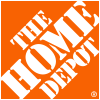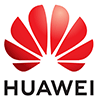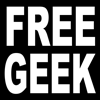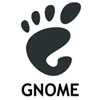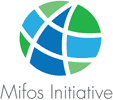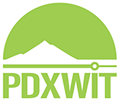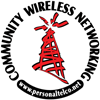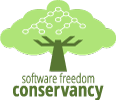Please log in
Schedule: The Next Architecture sessions
9:00am–12:30pm Monday, July 15, 2019
Location: C120-122
Secondary topics:
Cloud Native
Average rating:





(4.00, 3 ratings)
Lorenzo Fontana and David Calavera dive into how to understand and use extended Berkeley Packet Filters (eBPF) programs on Linux.
Read more.
1:30pm–5:00pm Tuesday, July 16, 2019
Location: Portland 256
Secondary topics:
Cloud Native
Average rating:





(4.70, 23 ratings)
If you want to work with GraphQL but aren't sure where to get started, this is for you. No matter where you fit into the stack, Eve Porcello and Alex Banks give you everything you need to start building powerful GraphQL services that sit on top of any kind of data sources from the core features through adoption.
Read more.
11:00am–11:40am Wednesday, July 17, 2019
Location: D135/136
Secondary topics:
Cloud Native
 Sean Kane (New Relic)
Sean Kane (New Relic)
Average rating:





(3.88, 8 ratings)
What happens when a company outgrows its very first data center or cloud region? Ideally, it uses its preexisting tools. Sean Kane outlines the challenges that New Relic faced while modernizing its infrastructure and demonstrates how it used processes and technology to successfully transform its monolithic data center into a repeatable system for stamping out new regions all around the world.
Read more.
11:50am–12:30pm Wednesday, July 17, 2019
Location: D135/136
Secondary topics:
Cloud Native
Average rating:





(4.50, 2 ratings)
Bridget Kromhout and Jessica Deen lead a demo-fueled exploration of the differences between Helm 3 and the Helm of yore, tips for a successful rollout or upgrade, and opportunities to shape the project’s future.
Read more.
1:45pm–2:25pm Wednesday, July 17, 2019
Location: D135/136
Secondary topics:
Cloud Native
 Tim Berglund (Confluent)
Tim Berglund (Confluent)
Average rating:





(4.55, 11 ratings)
It's become at truism in the past decade that building systems at scale, using nonrelational databases, requires giving up on the transactional guarantees afforded by the relational databases of yore. Tim Berglund explains that not only is a microservices estate built on Apache Kafka equivalent to a giant database, it's a database that can realize ACID semantics at scale.
Read more.
2:35pm–3:15pm Wednesday, July 17, 2019
Location: D135/136
Secondary topics:
Cloud Native
 Lorenzo Fontana (Sysdig)
Lorenzo Fontana (Sysdig)
Imagine a programmable Kubernetes performance analysis tool that runs at cluster level without performance implications. Lorenzo Fontana dives into how tracing the execution of your programs and the kernel they rely on in a Kubernetes cluster can be a challenge. He outlines a possible approach using bpftrace and kubectl.
Read more.
4:15pm–4:55pm Wednesday, July 17, 2019
Location: D135/136
Secondary topics:
Cloud Native
 Neeraj Poddar (Aspen Mesh)
Neeraj Poddar (Aspen Mesh)
Average rating:





(4.43, 7 ratings)
Understanding what problems a service mesh is designed to solve and leveraging its capabilities is key for application developers. This allows you to focus on the pieces you need to build your application and deliver business value. Neeraj Poddar dissects which service mesh capabilities you should care about and explores common questions from platform teams.
Read more.
5:05pm–5:45pm Wednesday, July 17, 2019
Location: D135/136
Secondary topics:
Cloud Native
 Ron Evans (The Hybrid Group)
Ron Evans (The Hybrid Group)
Average rating:





(4.90, 10 ratings)
TinyGo takes the Go programming language to the "final frontier" where it could not go before...running directly on microcontrollers like Arduino, the BBC's micro:bit, and more. Ron Evans introduces you to TinyGo and demonstrates some live coding.
Read more.
11:00am–11:40am Thursday, July 18, 2019
Location: Portland 255
Secondary topics:
Cloud Native
 Michael Angstadt (HEB Digital)
Michael Angstadt (HEB Digital)
Michael Angstadt shares straightforward approaches to getting executives, stakeholders, and engineers to buy into transformational improvements like breaking apart your monolith, moving workloads into Kubernetes, paying down the technical debt of legacy code, increasing observability, and refactoring a core component to make it more testable.
Read more.
11:50am–12:30pm Thursday, July 18, 2019
Location: Portland 255
Secondary topics:
Cloud Native
 Soam Vasani (Cohesion.dev)
Soam Vasani (Cohesion.dev)
Average rating:





(3.50, 4 ratings)
FaaS functions on Kubernetes are increasingly popular, with a lot of talk about the developer productivity advantages but less about what it takes to use serverless functions in production. Soam Vasani walks you through six specific approaches, patterns, and best practices that you can use with any FaaS or serverless framework.
Read more.
1:45pm–2:25pm Thursday, July 18, 2019
Location: Portland 255
Secondary topics:
Cloud Native
 Robert Aboukhalil (Invitae)
Robert Aboukhalil (Invitae)
Average rating:





(4.88, 16 ratings)
Join Robert Aboukhalil for an introduction to WebAssembly—a powerful tool for porting applications to the web and speeding up data-intensive web apps. If you don’t know what WebAssembly is, how it works, or how to practically get started using it, now’s your chance.
Read more.
2:35pm–3:15pm Thursday, July 18, 2019
Location: Portland 255
Secondary topics:
Cloud Native
Average rating:





(4.97, 39 ratings)
You built your system, you deployed it, you rolled it up in production, but it's just the beginning. The life of your system just started. Alex Borysov and Mykyta Protsenko outline their practical guide to building fault-tolerant systems with code and design patterns from REST and gRPC ecosystems, role of right product decisions, and importance of a proper communication culture.
Read more.
4:15pm–4:55pm Thursday, July 18, 2019
Location: Portland 255
Secondary topics:
Cloud Native
 Michael Hunger (Neo4j)
Michael Hunger (Neo4j)
Average rating:





(5.00, 2 ratings)
With the optimizing Graal Compiler added to Java 11 and the language implementations in Truffle for Ruby, Python, JavaScript, and R, it becomes possible to run them natively on the Java virtual machine (JVM), even exchanging data between them. Michael Hunger explains how you can make use of that impressive capability.
Read more.
5:05pm–5:45pm Thursday, July 18, 2019
Location: Portland 255
Secondary topics:
Cloud Native
 Derek Collison (Synadia Communications)
Derek Collison (Synadia Communications)
Average rating:





(4.67, 6 ratings)
Distributed systems are the way we design architectures these days. Systems involve more moving parts as monoliths are continually decomposed into microservices. Derek Collison explains how technologies like the NATS messaging system that do not depend on IP for addressing and use multiple communication patterns allow modern architectures to be better suited to a modern environment.
Read more.
5:05pm–5:45pm Thursday, July 18, 2019
Location: E143/144
 Mike Lutz (Samtec)
Mike Lutz (Samtec)
Average rating:





(4.50, 2 ratings)
The Jupyter Notebook ecosystem is transforming who can work in the big data and AI processing domain. But did you know that in addition to being an interactive tool, Jupyter can also act as a big data backend/ETL tool at scale even by smaller teams? Mike Lutz shows you how.
Read more.
Premier Diamond Sponsor
Diamond Sponsors
Platinum Sponsor
Gold Sponsors
Silver Sponsors
Supporting Sponsors
Premier Exhibitors
Exhibitors
Innovators
Non-Profit Exhibitors
Diversity and Inclusion Sponsors
Sponsorship Opportunities
For exhibition and sponsorship opportunities, email oscon@oreilly.com
Partner Opportunities
For information on trade opportunities with O'Reilly conferences, email partners@oreilly.com
Contact Us
View a complete list of OSCON contacts
©2019, O'Reilly Media, Inc. • (800) 889-8969 or (707) 827-7019 • Monday-Friday 7:30am-5pm PT • All trademarks and registered trademarks appearing on oreilly.com are the property of their respective owners. • confreg@oreilly.com



